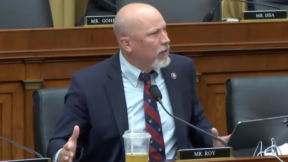‘Incorrect Promise’: NY Times Roundly Mocked for ‘Sugar Coating’ Broken Obamacare Pledge
 The New York Times has some interesting ways of phrasing things. A few weeks ago, they got flak for saying President Obama “misspoke” when he said, dozens of times over the course of three years, that you can keep your health care plan if you like it. The latest verbal trapeze act by the Times is the description of that pledge as an “incorrect promise,” a phrase that doesn’t exactly make logical sense.
The New York Times has some interesting ways of phrasing things. A few weeks ago, they got flak for saying President Obama “misspoke” when he said, dozens of times over the course of three years, that you can keep your health care plan if you like it. The latest verbal trapeze act by the Times is the description of that pledge as an “incorrect promise,” a phrase that doesn’t exactly make logical sense.
A promise, in and of itself, cannot be considered correct or incorrect, and can only be judged with words like “false” or “broken” or “Nature’s,” but this is how the Times phrased it when reporting on the intense pressure Obama faces to fix the health care low.
The split between lawmakers and the White House reflects the dilemma the president finds himself in as he seeks to follow through on last week’s acknowledgment about his incorrect promise on health care coverage. Hundreds of thousands of people have received cancellation notices from health insurance companies because their plans do not conform with minimum standards set by the new law.
Needless to say, this turn of phrase became the subject of much amusement/bewilderment on Twitter.
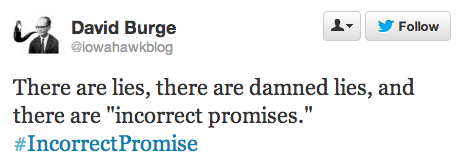

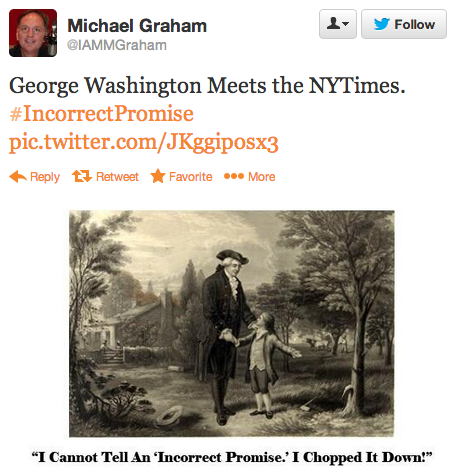
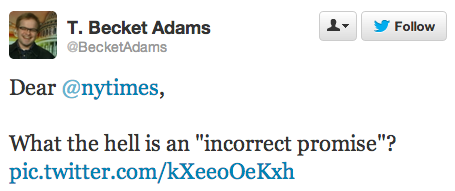
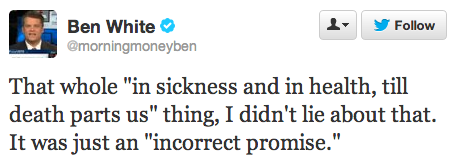

Fox News’ Greta Van Susteren joined the cacophony of mockery on her blog for the Times‘ “sugar coating.”
The fact the President did not correct it but continued and continued and continued etc to make this ‘incorrect’ promise suggests either he did not understand his own signature law or that he did it deliberately (tried to mislead.) Neither of the foregoing is very impressive.
Glenn Beck also weighed in on his radio show today, pointing out that no sane parent would ever confront their child about making an “incorrect promise.”
For her part, New York Times public editor Margaret Sullivan addressed the controversy and acknowledged the phrase doesn’t really make much sense to begin with.
It is an awkward phrase and, as Dylan Byers at Politico wrote, linguistically dubious. What, exactly, is an incorrect promise, anyway? Something more direct like “false promise” would have been both clearer and more accurate.
[photo via Haxorjoe]
— —




